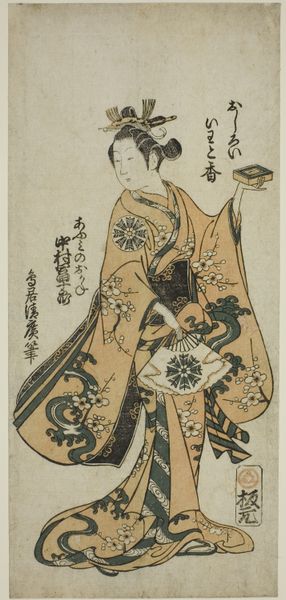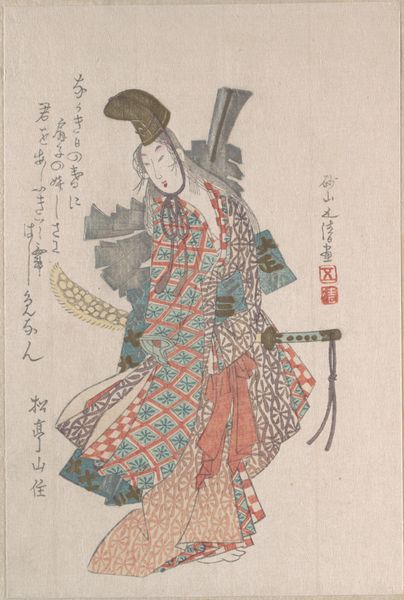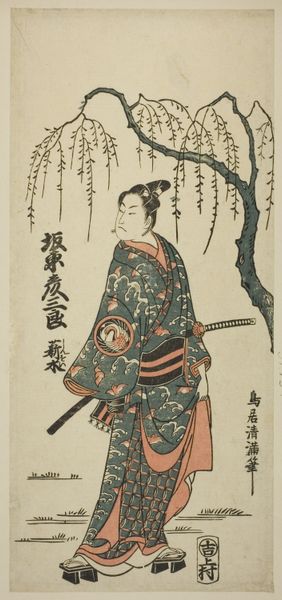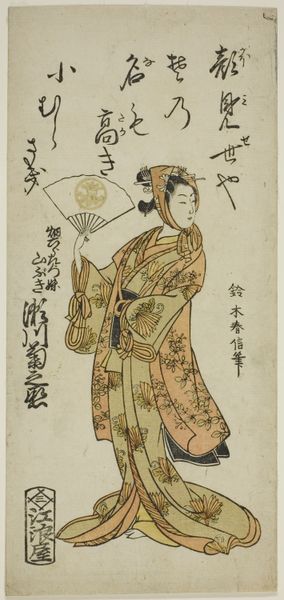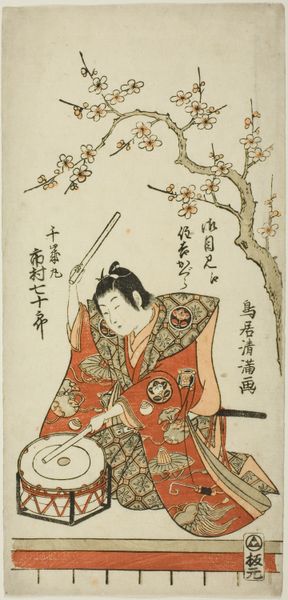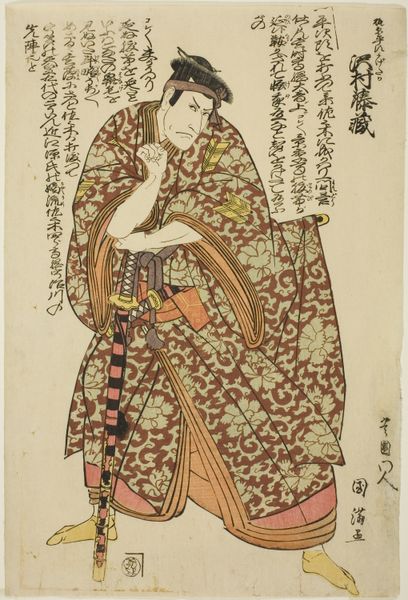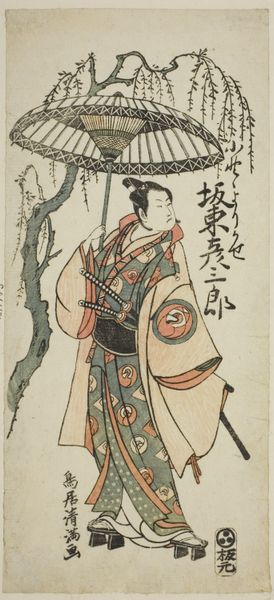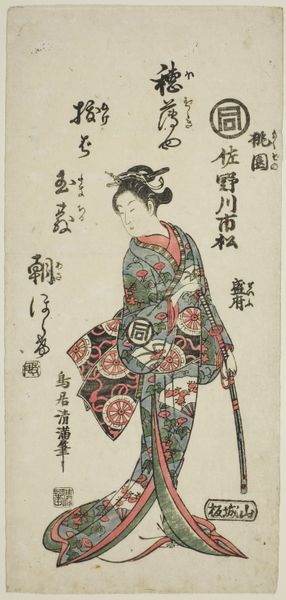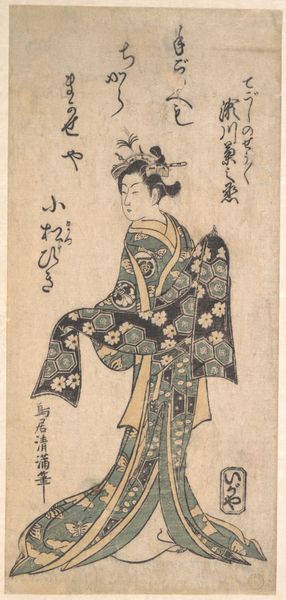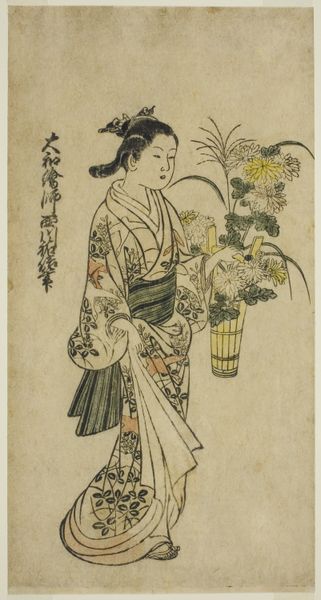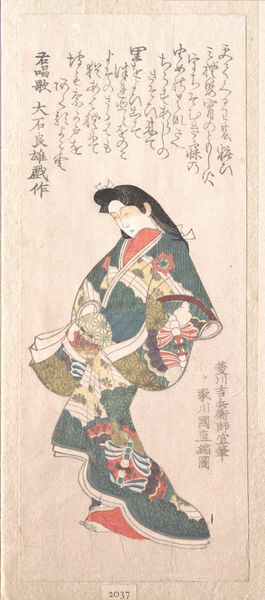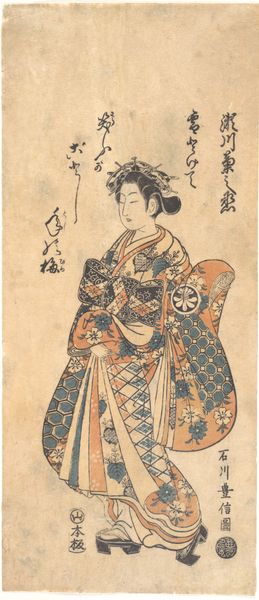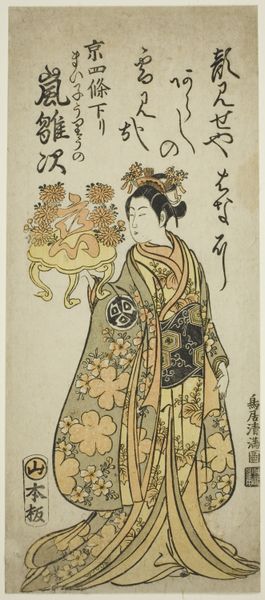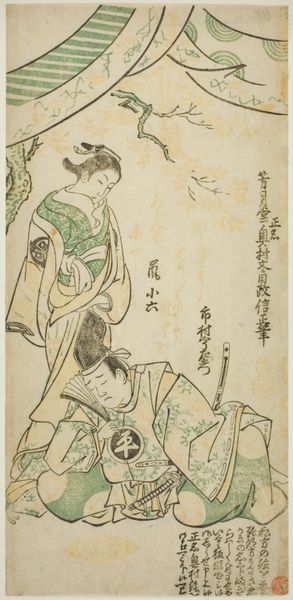
The Actor Anegawa Daikichi as Ayame no Mae in the play "Miyo no Hana Yunzei Kagami," performed at the Morita Theater in the eleventh month, 1760 1760
0:00
0:00
print, woodblock-print
#
portrait
# print
#
asian-art
#
ukiyo-e
#
figuration
#
woodblock-print
Dimensions: 11 1/2 × 5 1/2 in.
Copyright: Public Domain
This woodblock print, made by Torii Kiyomitsu in Japan around 1760, depicts the actor Anegawa Daikichi in the role of Ayame no Mae. The image connects to the wider social and cultural context of the Edo period when the theatrical world of Kabuki flourished as a popular entertainment for the merchant classes. The image creates meaning through visual codes that would have been easily recognized by contemporary audiences. The actor's elegant pose, elaborate costume, and the stylized maple tree reference specific elements of the play. The theater district in urban centers such as Edo or Osaka became important centers of commerce and amusement. Kabuki actors enjoyed celebrity status. These prints were, in effect, publicity material, ways to popularize the actors and the plays in which they appeared. To understand this print better, research into the social history of the Kabuki theater, the role of actors in Japanese society, and the development of woodblock printing as a commercial enterprise would be invaluable. The meaning of art is always contingent on its social and institutional context.
Comments
No comments
Be the first to comment and join the conversation on the ultimate creative platform.
